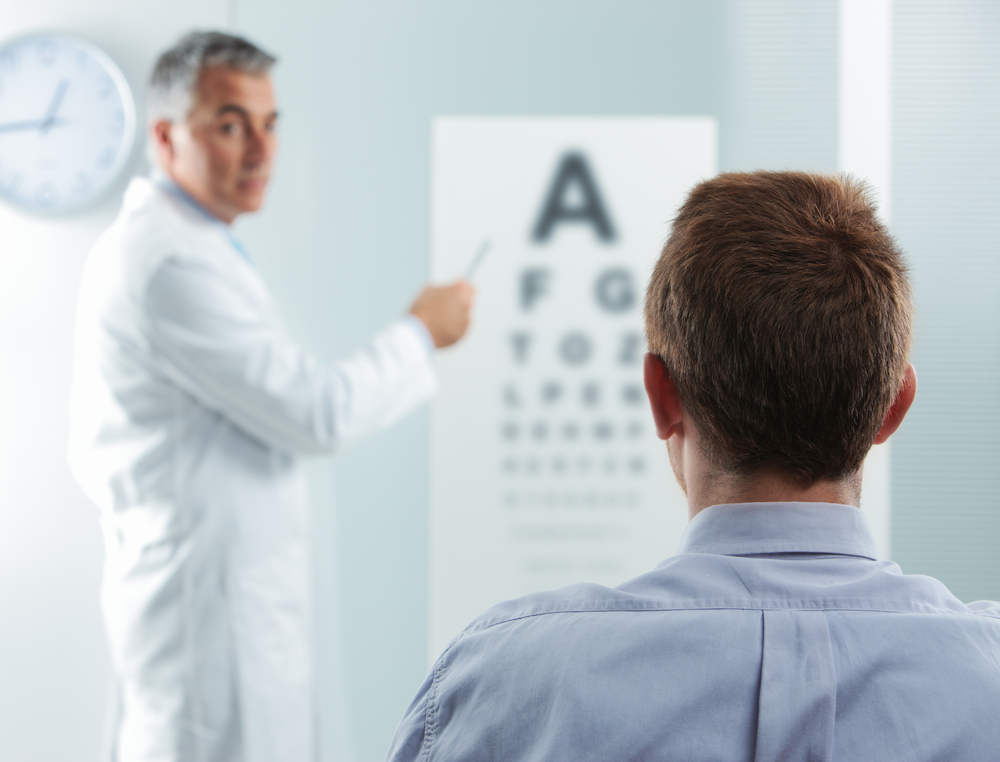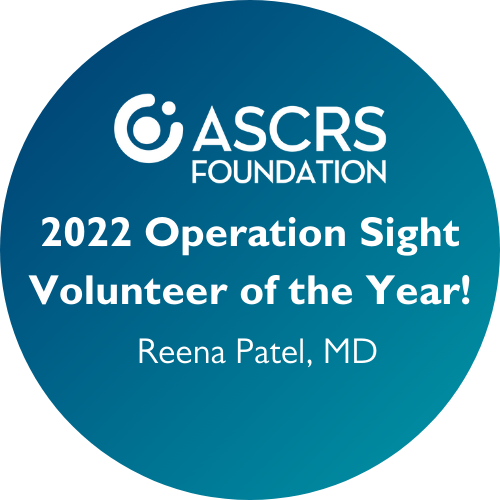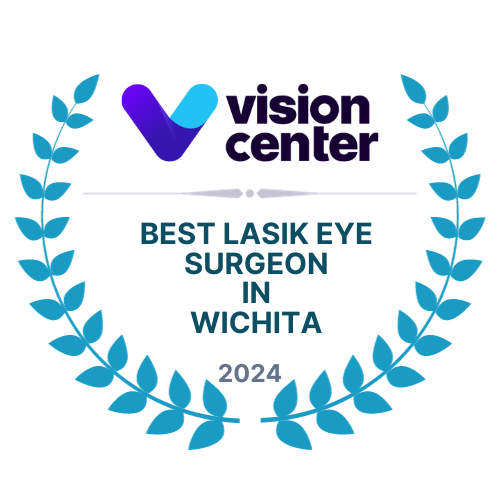If you have fuzzy or blurred vision, you might have a condition called macular degeneration. This problem can make it very difficult for you to read books, drive a car, and do important household chores. Fortunately, you can use a wide variety of efficient and comfortable methods to treat this condition. At Wichita Vision Institute in Wichita, KS, Dr. Reena Patel can help you address this frustrating eye problem.
What Is the Best Treatment for Macular Degeneration?
Macular degeneration develops when the macula in your eye starts to deteriorate. Since degeneration of this part of your eye can cause you to lose your central vision, you may struggle to accomplish daily tasks. Dr. Patel may use medications, photodynamic therapy, and other methods to address this problem. The best way to treat this eye condition will depend on the condition of your eyes and the type of degeneration that you have.
Before Dr. Patel begins your medical treatment, she will look at your eyes and review your symptoms. Once she has diagnosed your eye condition, she will put together a customized plan for you.
Taking Supplements
Under some circumstances, Dr. Patel will advise you to include dietary supplements in your treatment plan. Although these supplements will not cure your illness, they may decrease your risk of developing additional eye problems. For example, if you have already lost a large amount of vision in one of your eyes, you will have a higher risk of experiencing further macular issues.
Taking a supplement may reduce a person’s risk of experiencing certain types of severe macular problems in the future. During a scientific study, people decreased their chance of experiencing these eye problems by about 25 percent after they took supplements. These supplements contained vitamin E, vitamin C, zinc, zeaxanthin, and lutein.
Using Medications
Sometimes, Dr. Patel will treat your eye condition by providing you with medications. These medications can be a good way to address your vision issues in a quick and comfortable manner. For example, she may decrease your risk of developing abnormal blood vessels by injecting medication into your eyes.
A chemical called vascular endothelial growth factor contributes to the creation of abnormal blood vessels in your retina. This chemical is also called VEGF. Dr. Patel can address this problem by using Lucentis, Avastin, or other anti-VEGF medications to block this chemical and decrease these vessels’ growth.
Receiving Photodynamic Therapy
Photodynamic therapy may decrease your rate of vision loss. During this gentle treatment, Dr. Patel will inject medication into a vein on your arm. This medication will move into the abnormal blood vessels that are located in your eye. After you receive your injection, Dr. Patel will use a laser to shine a light into your eye. This process will allow your medication to destroy the abnormal blood vessels in this location.
Administering Other Treatments and Procedures
Dr. Patel can also address certain macular issues by using a laser to improve the condition of the blood vessels in your eye. In addition, she may advise you to address your symptoms by visiting a low-vision center. Many low-vision centers can provide you with support and rehabilitation programs. During your program, you will learn strategies and other techniques that will help you continue to participate in a wide range of social events and other activities.
What Types of Macular Issues Can I Develop?
You can develop dry or wet macular degeneration. The dry type of this condition is much more common, and this problem will impact light-sensitive cells in your eyes. If you have the dry form of this eye problem, these cells will slowly break down. As these cells become damaged, your central vision will become blurry. This eye problem will typically cause you to experience gradual vision loss.
If you have the wet type of this eye condition, you will develop additional blood vessels under your macula. As these vessels start to leak, fluid and blood will destroy your retinal cells. This process will cause blind or blurry spots to appear in your central vision. This eye condition can cause you to experience rapid changes in your eyesight.
How Can I Diagnose This Eye Problem?
You shouldn’t feel nervous if you believe that you might have a macular issue or other vision problem. Dr. Patel can use quick and comfortable methods to diagnose your eye condition during an appointment at her office in Wichita. In particular, she can learn more about the condition of your macula by providing you with a full eye exam. During this process, she might use drops to dilate your eyes and look at your retinas.
In addition, Dr. Patel can use other comfortable tests to analyze the extent of your vision loss and examine the changes in your macula. In particular, she might use the Amsler grid test to learn more about the changes in your central vision. During this test, she will ask you to look at a grid of straight lines and answer questions about your observation of this grid. For example, she will ask you to tell her if you see any blurry or distorted lines.
What Are the Symptoms of This Eye Issue?
If you have this eye condition, you might develop blurred vision. In addition, straight lines may begin to look wavy, and you may experience changes in the central area of your vision. It’s also common to have difficulty reading books and driving vehicles.
What Factors Will Increase My Risk of Developing This Eye Problem?
Your age, lifestyle habits, family history, and other factors will affect your chance of experiencing this vision problem during your lifetime.
Your Gender and Age
If you are female, you will have a greater risk of experiencing this health issue. As you get older, the condition of your eyes will change, and you will be more likely to develop this eye condition. In particular, you might experience this vision problem when you are in your sixties or seventies.
Your Health and Lifestyle
Smoking cigarettes will raise your risk of experiencing this eye issue. Smoking can decrease your ability to send oxygen to your retina and create problems in this area of your eye. Similarly, if you have high blood pressure, you will have a heightened risk of developing macular issues.
Your Relatives
If your parents or other close relatives developed this vision issue during their lifetimes, you may experience similar eye problems as you age. As a result, you will need to pay close attention to any vision changes that you experience and remember to receive regular eye exams from a trained professional.
The Condition of Your Eyes
If you have this macular problem, you might have deposits under your retina that are known as drusen. Although these deposits probably will not lead to vision loss, they might be an indication that you have a higher risk of experiencing more advanced eye issues in the future.
In particular, you may have a higher chance of developing more significant eye problems if you have high numbers of drusen or large drusen. In addition, having abnormal blood vessels in one of your eyes will increase your chance of experiencing more severe vision problems.
Will This Eye Condition Stop Me From Living Independently?
It’s normal to feel worried when you develop an eye problem that affects your ability to see. However, this macular condition may not affect your ability to do many important activities. If you have a more mild case of this eye problem, you might have very minor changes in your vision.
If you have severe macular issues, you may be able to use your peripheral vision to complete certain daily tasks and continue living independently. In addition, Dr. Patel may refer you to specialists and other healthcare providers who can help you adapt to your vision changes.
Can I Receive Treatment for Other Eye Issues?
In addition to addressing macular problems, Dr. Patel can provide treatments for age-related eye issues and other vision problems that you may experience throughout your life.
Cataracts
When you have good vision, the natural lens in your eyes will be clear. Sometimes, your lens can become cloudy. This eye issue is called a cataract, and you might experience this problem after you enter your forties. If you have cataracts, you might see halos around bright lights, have double vision, and have to use additional light when you are reading a book. You might also have challenges seeing during the nighttime.
Dr. Patel may address your eye issues by removing your cataract during a quick appointment at a comfortable facility in northwest Wichita. After she has eliminated your cataract, she will provide you with an artificial intraocular lens.
Glaucoma
If you have elevated pressure in your eyes, have experienced eye injuries in the past, or suffer from migraine headaches, you will be more likely to develop an eye problem called glaucoma. In addition, having diabetes or circulation issues will raise your chance of experiencing this issue. Glaucoma can cause you to have blind spots in your vision.
Dr. Patel can treat glaucoma by providing you with oral medications, eye drops, or laser therapy. These treatments can decrease the amount of pressure in your eyes and lower your risk of experiencing additional vision problems. In addition to using eye drops or other treatments, you will need to have regular meetings with Dr. Patel. These meetings will allow her to assess the pressure in your eyes and monitor your reaction to your treatments.
Dry Eyes
If you have dry eyes, you might have burning sensations and stinging feelings. Further, your eyes might be frequently red, and you might feel like you have debris stuck in this location. This health problem can prevent you from reading books, working on your computer, or watching television. Reactions to medications, the effects of living in a very windy area, and certain health problems can cause your eyes to become dry.
Dr. Patel may improve your symptoms by providing you with oral or topical medications. For example, she may advise you to use a medication like Restasis to improve your tear production.
Address Your Eye Problems
If you have blurry vision, are struggling to read books and use your smartphone, or are experiencing other eye issues, you should receive treatment from a trained healthcare provider. Dr. Patel can use supplements, medication, photodynamic therapy, and other gentle methods to treat macular degeneration. To begin the process of addressing your vision issue, you should contact Wichita Vision Institute in Wichita, KS.







